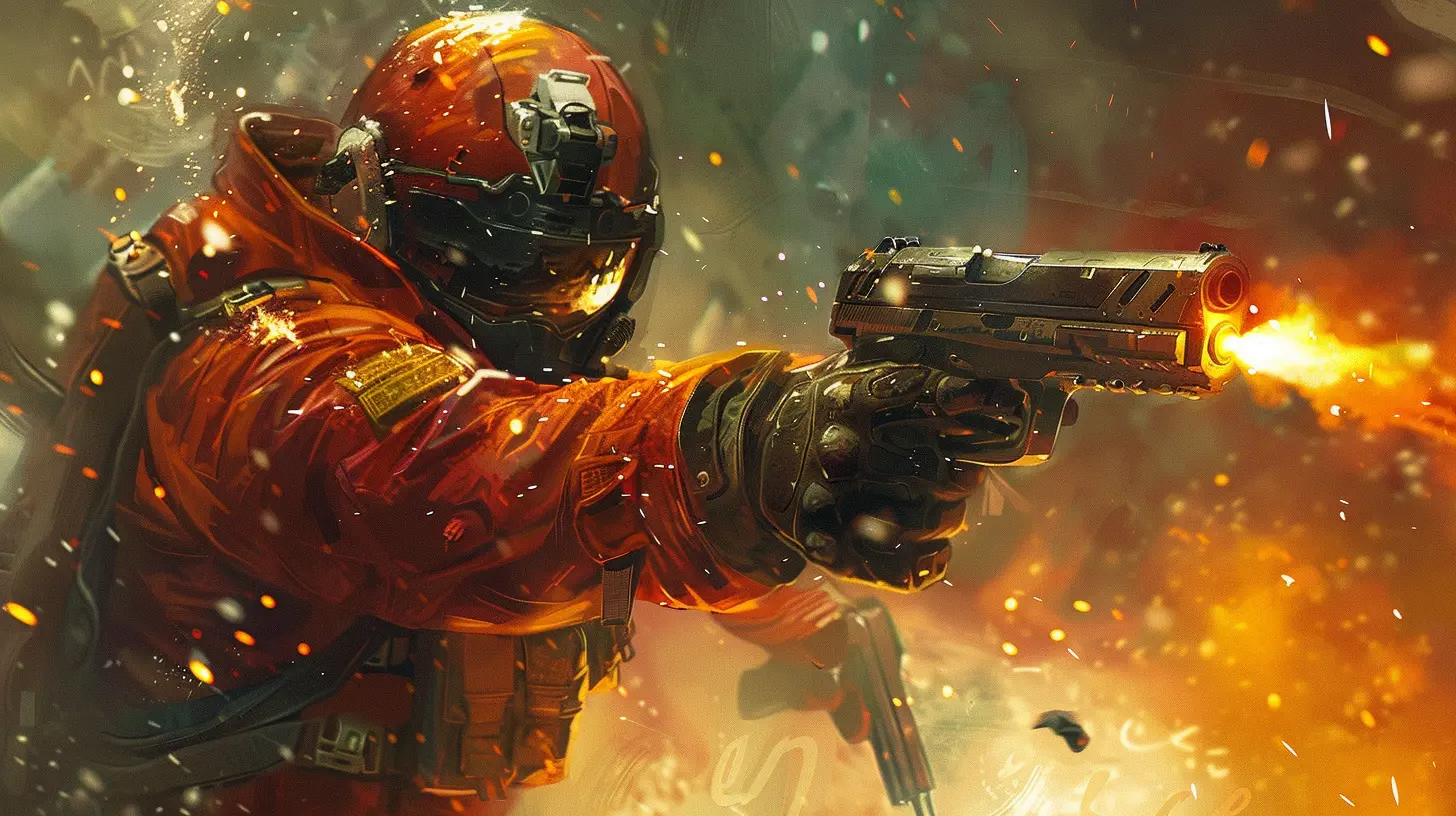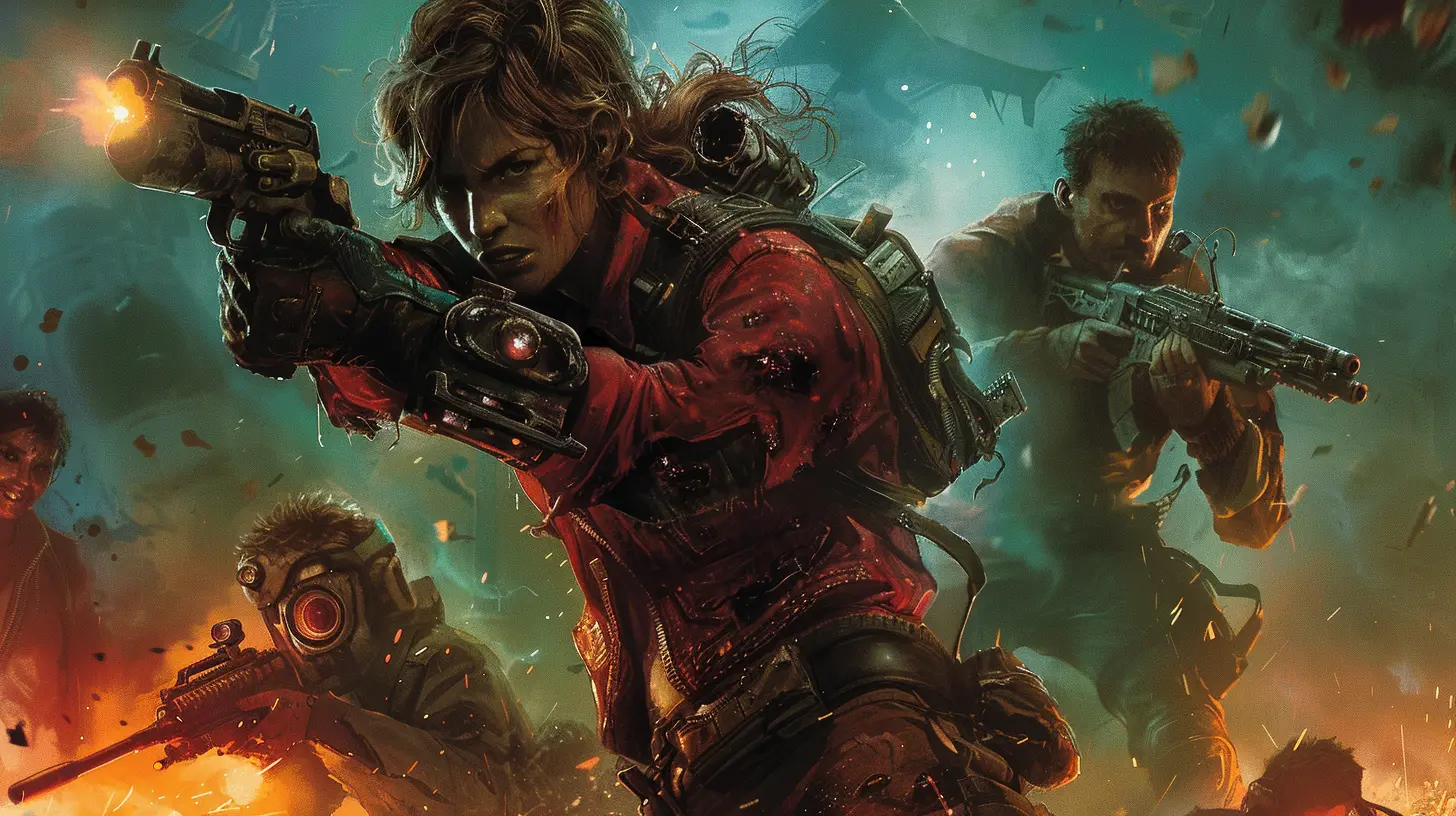Keeping the Peace: Dealing with Competitive Friendships in Board Games
14 October 2025
Board games are one of life’s simplest joys. Picture this—you’re sitting around a table with friends, snacks within arm’s reach, maybe some drinks to set the mood, and a good ol’ board game in the center waiting to spark laughter, strategy, and (hopefully) good-natured chaos. Sounds great, doesn't it? Until it doesn’t.
Because, let’s face it, nothing brings out the claws quite like a heated game of Catan, a ruthless Monopoly session, or even a cutthroat game of Uno. Sometimes, what was supposed to be a fun, carefree night turns into a battleground of bruised egos, icy stares, and friendships that might need some serious damage control after the dust settles. Competitive friendships during board games? They’re real, and they’re messy. But don’t worry—you’re not alone, and there’s definitely a way to keep the peace (and your friendships) intact.
In this article, we’ll dive into how to handle competitive friendships during board games like an absolute champ, so you can keep the vibes fun, lighthearted, and drama-free. Because guess what? Board games are meant to bring us together—not tear us apart. Let’s roll the dice on this topic, shall we?
Why Are Board Games So Darn Intense?
Before we jump into the whole "fix-it" side of things, let’s first acknowledge the obvious: Board games can bring out the inner warrior in all of us. Why does a simple game unleash such a fiery competitive streak? Well, it boils down to a couple of things:1. The Thrill of Competition
Let’s be honest, who doesn’t love winning? Whether it’s a casual game of Risk or an intense Scrabble showdown, there’s something deeply satisfying about outsmarting your friends and claiming victory. It’s human nature—we’re wired to compete.
2. High Stakes (Even When They’re Low)
Sure, you’re not competing for a million-dollar prize, but tell that to your adrenaline when you’re one turn away from winning. Player dynamics, pride, and bragging rights make even the smallest games feel monumental.
3. Games Tap Into Our Personality
Ever notice how some people take games super seriously, while others are just there for a good time? That’s because games reflect personality traits—whether it’s strategy, creativity, or decision-making. And when personalities clash, things can heat up fast.
4. Past Grievances Bubble Up
Let’s not sugarcoat it—sometimes, a board game serves as an outlet for built-up frustrations. That friend who took your last piece of pizza last week? They just stole the properties you needed in Monopoly. Coincidence? Probably not.
How Competitive Friendships Can Ruin the Fun
It’s one thing to be lightly competitive, full of playful banter and friendly teasing. That’s all in good fun. But when competitiveness crosses the line, things take a turn faster than you can say, “It’s just a game!” Here’s where things can go south:- Hurt Feelings: That “friendly” jab about someone being terrible at strategy? Yeah, it might sting more than you realize.
- Passive-Aggressiveness: Faking a pleasant tone while harboring a brewing storm inside? Not a great look.
- Full-On Arguments: Nothing kills the party mood faster than an argument over who cheated during a dice roll (seriously, let it go).
- Lingering Tension: Sometimes, the drama ends with the game, but other times, it sticks around and affects the friendship outside of game night.
But here’s the thing—board games are supposed to bring joy, not drama. So, how do you make sure that competitiveness doesn’t get in the way of the fun? Let’s dive into some hands-on tips.
How to Keep the Peace During Game Night
Dealing with competitive friendships during board games doesn’t have to feel like walking a tightrope. Here are practical and straightforward ways to keep everyone happy and the vibes positive.1. Set the Tone Beforehand
Before the game even begins, it’s worth laying down some ground rules or managing expectations. You don’t have to give a full-blown TED Talk, but a simple, “Hey, let’s keep it light and fun tonight” can go a long way. It nudges everyone to focus on having a good time rather than worrying about who wins.2. Choose the Right Game for the Group
Not every game is right for every crowd. If you know certain friends get a little overly competitive, maybe skip the high-stakes strategy-focused games like Risk or Scythe. Instead, go for cooperative games like Pandemic or Forbidden Island, where you’re working as a team to beat the game itself—not each other.3. Laugh It Off (Seriously, Learn to Laugh)
Things will get intense at times—that’s inevitable. But when that happens, laughter is your secret weapon. Got your plans foiled? Laugh about it. Lost a critical turn? Shrug and make a joke about your terrible luck. When you take things less seriously, it encourages others to do the same.4. Use Friendly Banter, Not Harsh Trash Talk
Playful teasing? Totally fine. Saying, “Wow, that was a rookie mistake, bro!” with a chuckle? That’s fun. But saying, “You’re awful at this game—why do you even play?” crosses a line and can kill the vibe faster than you can shuffle the deck.5. Take Breaks When Needed
If the tension starts to build, don’t push it. Pause the game, grab a snack, or take a bathroom break. Sometimes all people need is a few minutes to cool off and reset.6. Reward Good Sportsmanship
Winning is fun, but being a good sport should be celebrated just as much. Give a shoutout to someone for making a clever move or for being gracious during a loss. It not only boosts morale but also encourages others to be good sports too.7. Offer a Perspective Check
If things really start to feel heated, drop a casual reminder: “Guys, it’s just a game!” It sounds simple, but it’s often all that’s needed to break the tension and refocus everyone’s attention on the bigger picture.
When Things Go Off the Rails: Damage Control
We’re all human, and sometimes, despite the best intentions, things can spiral out of control. If a game ends in hurt feelings or tension, here’s how to approach it:- Apologize (If Necessary): If you know you said or did something that upset someone, own up to it. A simple, “Hey, I think I got too competitive earlier—sorry about that,” can mean a lot.
- Talk It Out: If someone is clearly upset, pull them aside and ask what’s going on. Sometimes, it’s about more than just the game.
- Take a Break from Competitive Games: If conflict during board games is a recurring issue, maybe take a break and hang out in a way that doesn’t involve competition—like watching a movie or grabbing food.
Turning Competitive Energy into Positive Fun
Not all competitiveness is bad—it can actually add to the excitement and make the game more enjoyable. The key is to channel it in a way that uplifts everyone. For example:- Cheer for other players when they make clever moves.
- Use competition as an opportunity to praise someone’s strategic thinking.
- Treat losses as hilarious misadventures rather than personal failures.
When everyone feels encouraged and supported, even the most intense games become bonding experiences rather than sources of stress.
Final Thoughts: Keep the Friendship First
At the end of the day, board games are about spending quality time with the people you care about. Sure, winning feels awesome, and it’s normal to want to do your best—but what’s the point if it comes at the cost of your friendships? Always remember the golden rule: Friendships > Winning.So the next time you’re gearing up for game night, keep these tips in mind. With a little effort and a lot of laughs, you’ll create not just memorable moments, but a tradition of drama-free game nights that everyone looks forward to.
all images in this post were generated using AI tools
Category:
Board GamesAuthor:

Emery Larsen
Discussion
rate this article
2 comments
Lila McNaughton
Why settle for friendship when you can engage in strategic warfare over Monopoly? Let the dice decide your destiny!" 🎲✨
February 25, 2026 at 3:49 PM

Emery Larsen
While competition can spice up friendships, fostering goodwill and fun is key. Let the games be playful, not perilous! 🎲✨
Ivory Sheppard
Who knew the path to friendship could be paved with board game pieces? Remember, it’s all fun and games until someone flips the Monopoly board—then it’s time to negotiate a truce with snacks!
October 15, 2025 at 3:38 AM

Emery Larsen
Absolutely! Board games can strengthen bonds, but a little snack diplomacy goes a long way when tensions run high!


